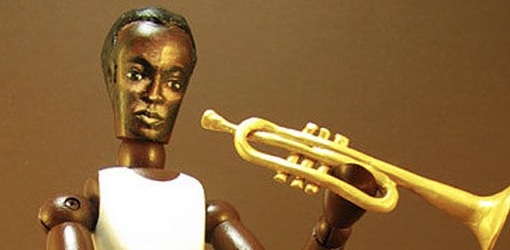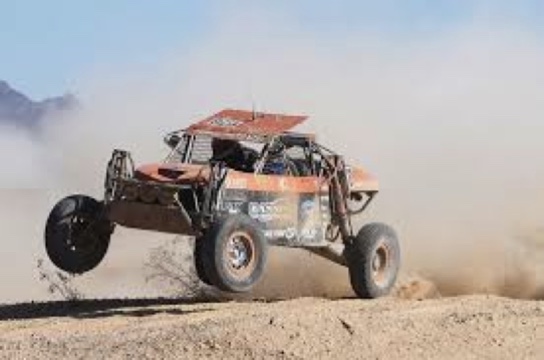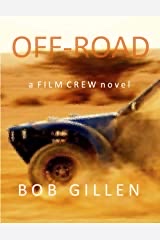James Brown warns his bass player, Keep it on the one. The upbeat. You can do anything from there.
The thirteenth month of pandemic, and the one is hard to find.
Notes and thoughts to get us through. And an excerpt from my novel to offer a moment of excitement.
What I’m Reading…or Trying To
Let me tell you about what I’m reading after thirteen months in the pandemic shutdown. Not much!
Thanks to Libby, my library’s online service, I have downloaded dozens of books without leaving the house. I can now explore new authors. I can read widely. I can re-read old favorites and classic lit. And yet…I have not finished most of the books I borrow. I am lucky if I get through 25% of any book. Even the sophomore books of new authors I love are not holding my attention.
I see so many people on social media talking about devouring books, excited over new offerings. Writing thousands of words a day. And I ask myself, What planet are they on? I want their Kool-Aid.
I should not be surprised at my current state of mindlessness. I’m not alone. In a New York Times article this past weekend, “We Have All Hit a Wall: Confronting late-stage pandemic burnout, with everything from edibles to Exodus, Sarah Lyall captures how many, like me, are feeling:
“Call it a late-pandemic crisis of productivity, of will, of enthusiasm, of purpose. Call it a bout of existential work-related ennui provoked partly by the realization that sitting in the same chair in the same room staring at the same computer for 12 straight months (and counting!) has left many of us feeling like burned-out husks, dimwitted approximations of our once-productive selves.”
In the article Lyall quotes Manhattan HR specialist Elizabeth Abend: “’So many things seem like so much more work than my brain can possibly manage,’ she said: sending routine emails, brushing her teeth after every meal, reading a novel. She has started drinking coffee from a mug that says, ‘Apathy Is the Best Whatever.’”
And teen journalist Sophie Frank, the daughter of a fellow author, sums up what it’s like struggling with remote learning. See her article in the Hudson Valley publication The River.
Frank says, “Once when I was younger, I went swimming and was swept downstream by a vicious current. I managed to grab a branch that extended across the river and I pulled myself out, but I could feel the water spilling over me, not wanting to release me. That’s how online school sometimes feels.”
Finding motivation is a struggle.
She continues, “I’m reaching for the branch, for the end of the pandemic, but so much is dragging me down. Finding motivation is a struggle. I spiral into existential thinking the moment I try to do homework or find a positive attitude, and then I tell myself that I have no reason to feel so upset and unmotivated. Then the kinder part of my brain emerges, reminding me that all of life as I knew it was flipped upside down in less than a week. The two parts of my brain campaign for my attention like a political candidate in a swing state.”
I think Sophie Frank nails it. I too feel like I am swimming against a current intent on dragging me downstream.
And then a branch appears. Something to hold on to. Hope. I recall one of author/artist Austin Kleon’s blog posts from 2019. He cites singer James Brown’s advice: Keep it on the One.
“The ‘One’ is derived from the Earth itself, the soil, the pine trees of my youth. And most important, it’s on the upbeat—ONE two THREE four—not the downbeat, one TWO three FOUR, that most blues are written. Hey, I know what I’m talking about! I was born to the downbeat, and I can tell you without question there is no pride in it. The upbeat is rich, the downbeat is poor. Stepping up proud only happens on the aggressive ‘One,’ not the passive Two, and never on lowdownbeat. In the end, it’s not about music—it’s about life.”
And here’s how musician Miles Davis concludes his autobiography:
“I have never felt this creative. I feel like the best is yet to come. Like Prince says when he’s talking about hitting the beat and getting to the music and the rhythm, I’m going to keep ‘getting up on the one,’ brother, I’m just going to try to keep my music getting up on the one, getting up on the one every day I play. Getting up on the one. Later.”
My advice to myself this week: Grab the branch. Keep calm and keep it on the One. the upbeat.
What I’m Writing
Please enjoy an excerpt from my novel Off-Road, about three teens (the Film Crew) who shoot an off-road race in the Mojave Desert. Tessa and Lyndie set up out on the race course to film the race vehicles as they come out of Scorpion Pass. Eric is riding shotgun for one of the race cars, a class 11 VW bug.
Out of the Pass
Tessa ran over to stand ready at the tripod. She draped the black cloth over her head to see the viewfinder clearly. Lyndie climbed up on top of the truck, aiming the camcorder at the Pass. Her phone faced the track to pick up audio.
They heard a low buzz. Lyndie waved. “They’re coming!”
Scorpion Pass formed a hard curve as it cut through the rock formations that stretched for a few miles to either side. Tessa and Lyndie would not see the vehicles until they emerged from the Pass.
Tessa heard the buzz grow louder. A low cloud of dust drifted up over the rocks.
Within minutes, a black trophy truck blazed out from the gap between the rocks. It immediately went airborne off the rise in the track. Tessa followed the action with her camera.
A string of race vehicles, trophy trucks and a few class 1 buggies, roared out of the neck of the Pass behind the lead truck. As they cleared the pass, they hit the rise, every one of them going airborne. They landed hard, kicking up clouds of dust, tires biting the dirt for traction.
Tessa panned the camera on the tripod to capture the vehicles flying off down the road. Up ahead the road widened and the cars jockeyed to pass one another.
She swung the camera back to the Pass as a yellow buggy went airborne on the rise, twisted in the air, and almost flipped when it hit ground. Running on two wheels for a hundred feet, it churned up a plume of sand before it finally righted itself and roared off. Tessa maintained a wide shot as she followed the buggy with the camera. A billowing dust cloud obscured her shot for a few seconds. In moments the vehicles were gone, roaring down the course to the finish line.
Tessa yelled over to Lyndie. “This is awesome! Get anything usable?”
“I got closeups of the tires and the flying dirt! I tried to get up close on a couple of drivers. Got a decent shot of one.”
“Sounds good. More should be coming through any minute.”
Tessa checked her settings again. The white balance looked good. Audio levels were strong.
Lyndie checked playback on her phone’s audio. “The ambient sound is strong. I can almost hear a bass riff coming to me. I’ll get it down when we get back to the campsite.”
A faint rumble of engine noise bounced off the rocks in the Pass.
“More,” Lyndie yelled.
Within moments a second string of trophy trucks and buggies emerged from the Pass, spreading out to pass each other on the open track. Tessa got shots of the tires kicking up dirt and dust. As they moved away, she tilted the camera and got a shot of the dust cloud rising up into the sun.
Noise again. Tessa spotted a red pennant flying from an antenna on one buggy. Passed too quickly for a decent shot. This time more trophy trucks racing through. Faster than the buggies. A few more buggies roared through behind the trucks.
A trophy truck airborne, dust billowing behind it.
For a steady fifteen minutes, buggies and trucks poured through the Pass. Tessa took the camera off the tripod, moved closer to the track. She sat in the sand to get shots of each vehicle from a lower angle. She managed a stunning shot of a trophy truck airborne, dust billowing behind it, sunlight reflecting behind it from the rocks.
A pause. The dust settled. The desert grew quiet again. The sun was still high overhead.
“This is a really good location,” Tessa said.
Lyndie smiled, nodded.
The radio squawked. “Hi Mr. Pyne,” Lyndie said. “Yeah, we’re good here.”
She listened, nodded. She called out to Tessa.
“He says there was a minor accident on the first leg of the course. Nothing serious. More racers should be coming through soon. The class 11 VWs and the slower trucks will be in this group. Watch for Jimmy and Eric.”
Lyndie put the radio down. She turned toward the Pass.
Tessa spun around when she heard Lyndie cry, “Listen.”
The buzz of approaching engines grew louder. As the girls turned their cameras towards the Pass the steady roar began to break up.
Morphing into a staccato of crunching, scraping, grinding metal.
And rising up out of that noise, another sound.
Screams.
***
Check out my books on Amazon.




Leave a Reply